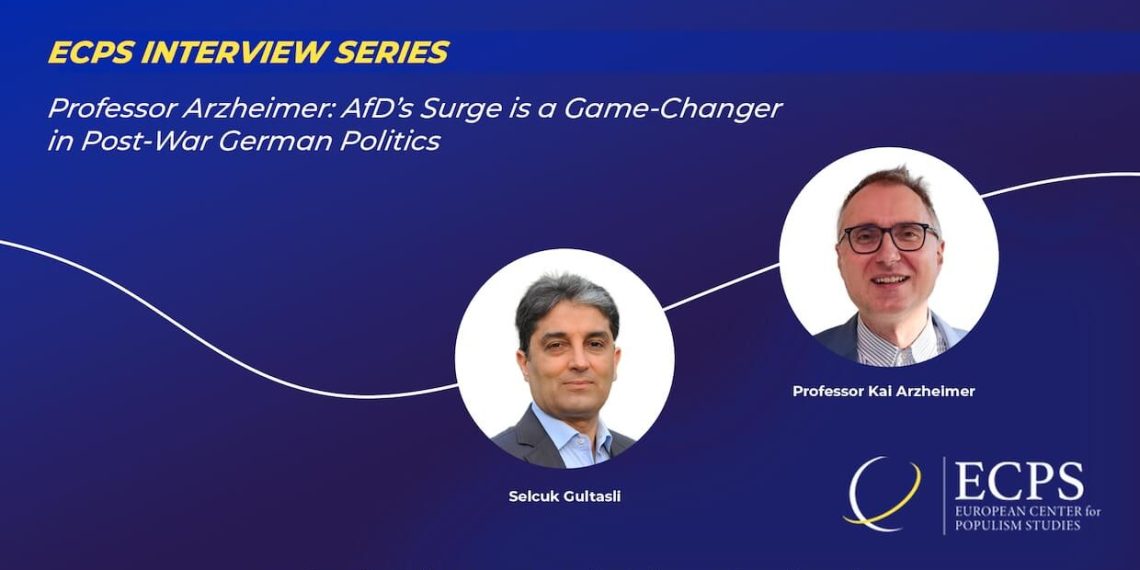The Alternative for Germany (AfD) has doubled its vote share in the February 23 elections, marking what Professor Kai Arzheimer calls “a turning point in post-war German politics.” While expected, this surge solidifies the AfD as Germany’s second-strongest party, normalizing far-right rhetoric in mainstream discourse. Arzheimer highlights how economic anxiety, deindustrialization, and anti-immigration sentiment fuel AfD’s rise. He also warns that mainstream parties risk losing credibility by mimicking far-right policies rather than offering bold alternatives. Despite its growing influence, AfD’s radicalization presents both an opportunity and a challenge for German democracy. As political fragmentation deepens, the response of centrist parties will determine whether this shift is temporary—or part of a long-term realignment.
Interview by Selcuk Gultasli
The Alternative for Germany (AfD) has cemented itself as a formidable force in German politics, nearly doubling its vote share in the February 23 elections compared to 2021. According to Professor Kai Arzheimer, a leading expert on far-right politics and political behavior at the University of Mainz, this outcome, while anticipated, marks a turning point in post-war German politics. "We now have a party that is not just populist and radical but also contains some extremist elements as the second strongest party in Parliament," Professor Arzheimer notes, calling the development a game-changer in the country’s political landscape.
The AfD’s electoral success is not an isolated phenomenon. Across Europe, far-right parties have gained ground, often benefiting from economic anxiety, nationalist rhetoric, and anti-immigration sentiments. In Germany, the party’s influence extends beyond its electoral gains, shaping the political discourse and policy agendas of mainstream parties. Professor Arzheimer highlights how, in recent years, even traditionally centrist parties have shifted their rhetoric and policies on immigration and national identity, a trend he attributes to the AfD’s normalization of far-right discourse.
One of the key factors behind the AfD’s success is its strategic use of social media, particularly in the wake of Elon Musk’s takeover of Twitter (X). While Professor Arzheimer downplays Musk’s direct impact on the election, he acknowledges that algorithmic changes and the reinstatement of extremist accounts have helped amplify the AfD’s messaging. “The AfD is a dominant player on most social media platforms,” he explains, adding that their online presence is a significant factor in their mobilization efforts.
Regionally, the AfD remains strongest in Eastern Germany, where it secured over 35% of the vote in some areas. However, as Professor Arzheimer points out, its appeal has also grown in certain Western post-industrial and rural areas affected by economic decline. This expansion raises the question of whether the AfD’s rise is a temporary protest vote or a lasting realignment. While some new supporters come from former non-voters, Professor Arzheimer believes there is now a solidified base of AfD voters that is not disappearing anytime soon.
As the AfD continues to push German politics further to the right, mainstream parties face a crucial choice: continue accommodating the far-right’s rhetoric or present a bold alternative. In this interview, Professor Arzheimer offers a deep dive into the AfD’s trajectory, its impact on German democracy, and the broader implications for Europe.


